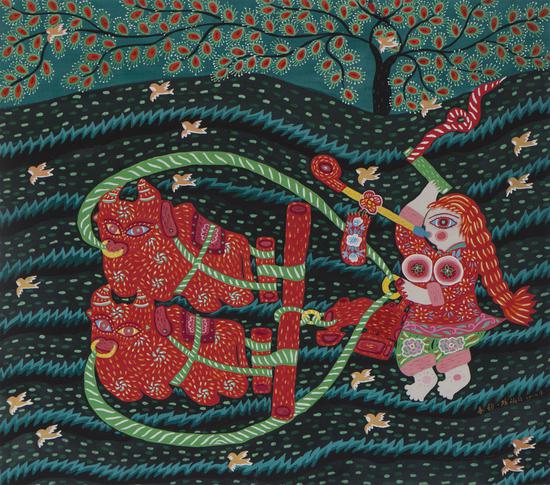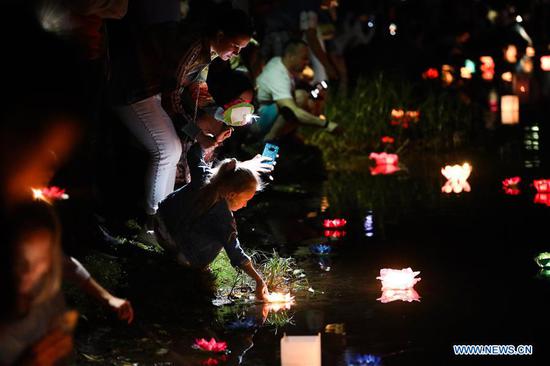
Expert says China will need 40,000 more psychiatrists and 430,000 more psychological counselors in the coming years.
Liu Xinrui, a middle school student in Shijiazhuang, capital of the northern province of Hebei, was having difficulty breathing and occasionally she felt nauseous. The symptoms arose as Liu prepared for numerous extracurricular classes arranged by her parents.
The anxious 14-year-old asked her mother to take her to one of the city's best-ranked hospitals so she could consult a psychiatrist. To her dismay, she found that there were very few trained personnel available.
Liu's dilemma is not unusual in China, where millions live with untreated mental illnesses and psychiatric disorders as a result of inadequate mental healthcare services.
According to a blue book report published by the Institute of Psychology at the Chinese Academy of Sciences in February, 11 to 15 percent of people in the country have mild to moderate mental health issues, while 2 to 3 percent have moderate to severe conditions.
Yu Xin, a psychiatry professor at Peking University Sixth Hospital, said the number of people in the capital diagnosed with clinical depression is rising. He sees about 20 patients during each half-day shift, twice as many as five years ago.
"With the country's rapid economic development and dramatic changes in social structure, this grim result can be attributed to a culture of overwork, fast-paced living, anxiety about success and low social awareness," Yu said.
Furthermore, the effect of the former family planning policy, which restricted most couples to one child, means a large number of younger people are enduring loneliness and the pressure of their parent's expectations in terms of such things as education and work on their own, he added.
Shortage of services
That makes the shortage of trained mental health professionals more acute. Statistics released by the Chinese Medical Association show that last year there were only 2.19 psychiatrists and 5.51 registered psychiatric nurses for every 100,000 people in China, compared with 13.06 psychiatrists and 23.49 registered nurses for the same number in the United States.
Liu was feeling resentful and anxious about her parents' decision to arrange a "new semester" that would occupy the entire monthlong summer holiday without consulting her. Her symptoms - difficulty in breathing and nausea - became more acute as the time for the classes drew closer.
She insisted on seeing a psychiatrist in the hope that the doctor would understand and provide a diagnosis that would spare her from the unwanted classes.
However, her mother wanted the doctor to get Liu back on a normal track and cure her unwillingness to attend the classes.
Liu spoke with two psychiatrists: one attributed her depression and anxiety to lack of exercise and outdoor activity, while the other recommended that she stay at Hebei General Hospital for a short while, as he felt she was too young to take antidepressants.
The doctors were vague about whether she should still attend the classes, so Liu and her mother returned home without a solution to their problem.
"This is not the psychological counseling I have seen in movies and TV series. The psychiatrists seemed in a rush, and because they couldn't offer drugs, they just offered commonsense suggestions that even my grandpa could give. I didn't see how it was any different from consulting an ordinary physician," Liu said.
Chen Zhiyan, a professor at the Institute of Psychology at CAS, said the lack of psychiatrists means it's not possible to obtain in-depth counseling at hospitals. Therefore, psychiatrists mainly treat mental health problems via a physiological approach, such as prescribing medication.
"Psychiatrists are able to work with patients to ensure that the doses are correct and there are no adverse reactions to other drugs they might be taking. However, it requires more than that to address mental health issues. It takes months or even years of ongoing efforts to figure out the root cause of a problem and offer a solution. Instead, psychological consultation should better meet the needs of the people concerning mental health, and improve their condition," she said.
Despite the strong demand for psychological consultations, the blue paper also noted that 74 percent of those surveyed did not have convenient access to such services in their daily lives.


















































